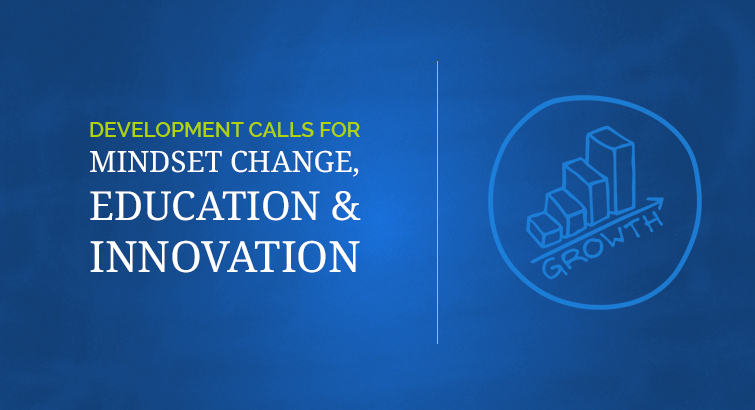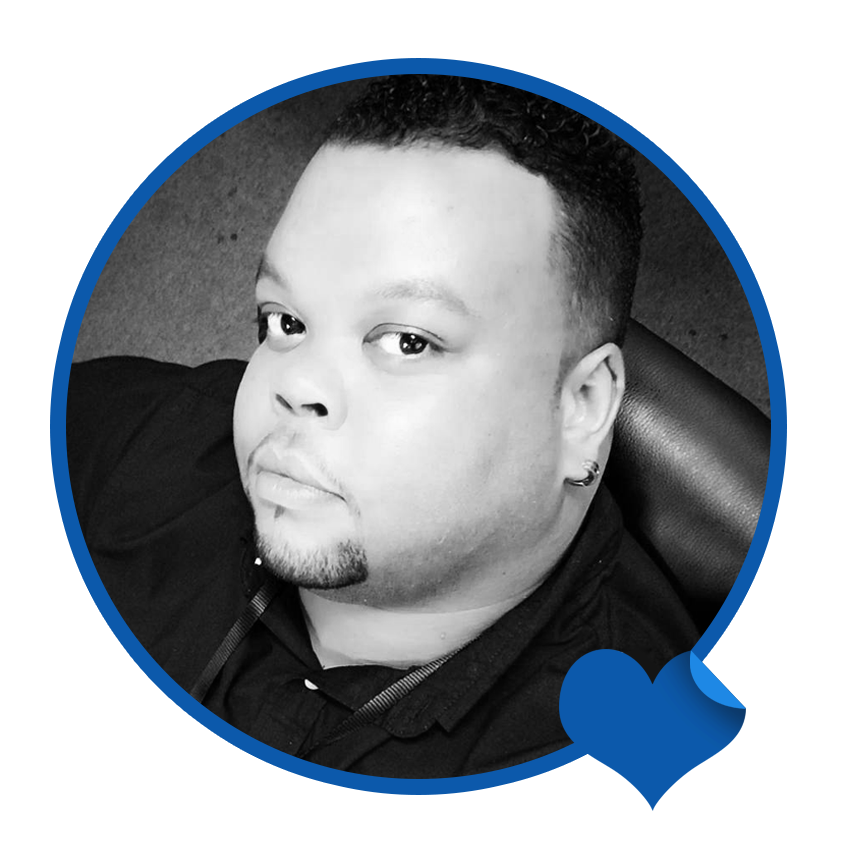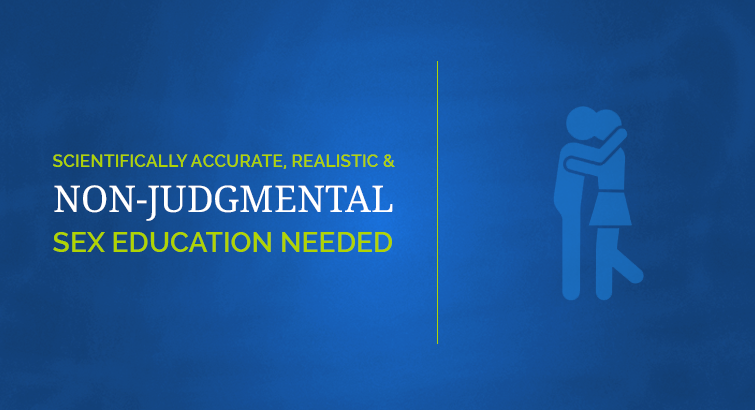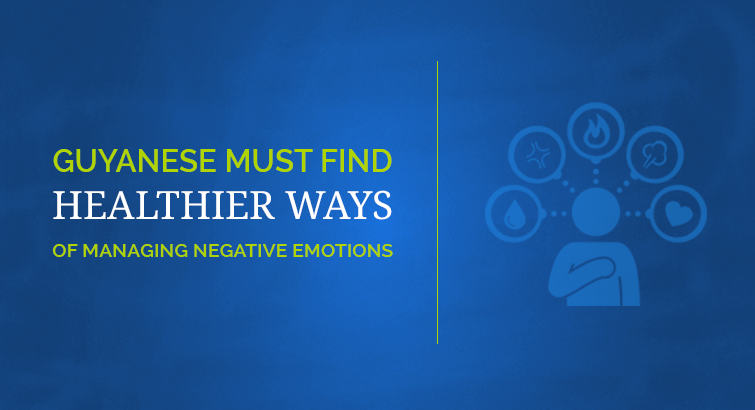|
Many people today do not see themselves as being crucial or important towards development or improvement of the day to day activities in our little society of Guyana. As a confession, I must say that I too echoed this sentiment every day. But what does it take for us to realize and understand that we, the people, are a crucial element to the catalyst of change and development? We, like many before us, must first make that step. We must take that risk and change ourselves, our families, our communities and our country. I recently had a discussion with a friend about our country and the ever-present topic of population size versus development and the effects of the ‘brain drain’ within Guyana. The sentiment is that we have experienced “brain drain” on such a large scale, that the bulk of our skills and achievements all exist within the diaspora which is the case in many instances. But my contrary view is that we are BRILLIANT and blessed beyond measure with vast natural resources (both environmental and human). Our real problem is mustering the motivation to get up and push forward towards our goals by utilizing these very resources. When you travel, you quickly begin to realize that there are few places in the world where you cannot find ‘a Guyanese’ in some key position of prominence including business, industry, community and the judiciary. This would suggest that upon exposure to other environments, we are able to wake up and shoot ahead of the line. So the question begs, why is this not happening at home? Or rather, why does the perception exist that this cannot happen at home? The United Nations defines community development as "a process where community members come together to take collective action and generate solutions to common problems. It is a broad term given to the practices of civic leaders, activists, involved citizens and professionals to improve various aspects of communities, typically aiming to build stronger and more resilient local communities." The Community Development Exchange also defines community development as: A set of values and practices which play a special role in overcoming poverty and disadvantage, knitting society together at the grassroots and deepening democracy. It starts with one person, committing themselves toward improving their life. Change begins and has a greater impact at the lowest level. We cannot and must not sit back and expect that we will automatically get something. The rest of the world is moving ahead and so must we. Though my thoughts shared here are for everyone, it is my hope that our youth ponder on this particular realization. Understanding that the demographic composition of our country is largely dominated by young people, it is vital that this segment takes the lead in moving forward. It is often said that youth are not only the leaders of tomorrow but more crucially the partners of today. We have a role to play, not only in a future Guyana but also in the journey to get there. Putting in the work and dedication towards our education, training and development ensures that we have a place set in the future. It ensures that we do not have to merely settle for what is given. We can ask and receive what we want. There are many opportunities out there for gaining knowledge; either through educational institutions or training facilities. We just need to take the step to enroll and complete the programs. Some responsibility also rests with the older generation. Those within the private and public sectors; as well as civil society must be prepared to embrace innovation. Two popular quotes describe our local mindset "Insanity is doing the same thing over and over again and expecting different results." -- (not Albert Einstein but actually Rita Mae Brown) and "If it ain't broke, don't fix it. That's the trouble with society: Fixing things that aren't broken and not fixing things that are broken" -- (Thomas Bertram Lance). We blindly do things ‘our way’, as they have always been done, without even considering other alternatives. Why is this? Of course, we have been able to achieve results the way we have and change may be risky, etc. But this inability to embrace the new has stymied our ability to grow and in essence, we have yet to achieve our full potential as a nation. The time has come. We must look to ourselves and embrace the idea of development on a deeper, more personal level. It starts with developing our selves, then our families, then our communities and ultimately, our country as a whole will GROW.
0 Comments
Since the beginning of time, sex has been seen as an expression of love, art, pleasure, human desire, the biological need to procreate or perhaps all of the above. The important takeaway there is that sex mean different things to different people but there is no denying that it will inevitably be a part of our lives. From religious texts dictating the parameters of sex to raunchier expressions of what sex can be like the “Fifty Shades of Grey” phenomenon, or Salt-N-Peppa’s infamous “Let’s Talk About Sex”; we are exposed to sex and the ways in which it is celebrated in many different ways. Interestingly enough, despite this, sex remains taboo in our society and it is evident in the way sex education is opposed. Comprehensive sex education is widely believed to have a positive impact on developing healthy sexual habits. But how is it defined? “Age appropriate, culturally relevant approach to teaching about sexuality and relationships by providing scientifically accurate, realistic, non-judgmental information.” - UNESCO Christofora Tirtawinata, a professor and author at Binus University, proffers that its purpose lies in “fostering self-understanding and self-respect by building sexual and social responsibility.” Sex education is widely celebrated for its positive impact on teenage pregnancy, HIV and other STD awareness, proper sexual health decision-making and understanding one’s sexuality. A 2016 UNICEF report identifies teenage pregnancy as a major challenge facing adolescents in Guyana, where the teenage pregnancy rate is the second highest in the Caribbean and 62% of adolescents fail to meet basic contraception needs. UNICEF attributes the absence of age-appropriate sex education as a substantial cause and also reports that comprehensive sex education can greatly reduce the spread of HIV among adolescents. The Guyana Responsible Parenthood Association (GRPA) identifies this deficiency in sex education as a reason for dangerous sexual experimentation among youths, reporting that more than 50% of youths are sexually active and 35% of them are below 16. Sex education in schools has seen resounding success in Holland which has the world’s lowest teenage pregnancy rate and reduced STD infections, attributed to well-designed programmes. The problem arises when we choose to prioritize our misconceptions about sex and sex-talks over the undeniable benefits of comprehensive sex education. Some opposing views of sex education and the way it is approached in Guyana are undoubtedly painted by the brush of religious ideology declaring abstinence-only approaches as the most effective means of promoting sexual health, if not the only means. In fact, Rose Marie Belle Antoine, renowned Caribbean author and professor at UWI, opines that generally ideological and philosophical stances within the Caribbean are influenced by a particular concept of morality, social and cultural norms shaped by Anglo-Saxon Christian perspectives. One ought to question whether this inhibits us from seeing the larger picture as it relates to the welfare of our children. Would we expect them to be proper accountants if we only taught them addition, without exposure to multiplication and subtraction? My point here is that abstinence obviously has its benefits but is simply one limb of sex education, which requires a more comprehensive and broader exposure to the issues they will undoubtedly face, including, inter alia, contraception, abortion, and sexuality. Issues which studies have shown lead to depression, unhealthy sexual practices and other ramifications for one’s physical and mental health. Opponents are also largely concerned that sex education focuses primarily on sexual techniques and encouraging sexual experimentation. But this illustrates an information gap that needs to be properly addressed if the benefits of proper sex education are ever to be reaped. Even in countries where it is taught in schools, a major impediment is community perception often plagued by inaccuracies, myths and unwavering traditional values about marriage, gender roles, sexuality and restricted sexual attitudes. As such, in order to promote a favorable climate for sex education, sex educators and supporters must clearly identify and address opposing arguments that create negative beliefs about its purpose and impact. If sex educators are imparting sexual health advice, which is then severely discounted by parents, this can defeat the purpose of comprehensive sex education. Perhaps this is why Joy Walker, an author and professor attached to the University of Bradford, suggests a hybrid approach with parents and professionals, especially in communities where parents have reservations about sexual education and are not exposed to accurate information. Parents’ biological sex and their own sex education, however vast or limited, influence the parameters of the sex education they provide to their children. We ought not to discredit their important role in sex education. Studies have shown that contraception-use is generally lower among men and women without exposure to sexual health talks with their parents and being forced to learn through experience, which can lead to high-risk experimentation. Children rarely initiate the “sex-talk” out of embarrassment, lack of self-confidence, and primarily, the fear that their parents will think they are sexually active; an issue that is exacerbated in a society such as ours where sex-talk is taboo. Several scholars proffer that we have a human right to such information to promote healthier practices, especially since it concerns public health and social issues. Additionally, some experts, such as Tirtawinata (introduced above) perceive a link between sexual abuse, a prevalent issue in our society, and the lack of sex education. Sex education fosters healthy social and sexual responsibility by providing scientifically accurate, realistic, and non-judgmental information. Parents, teachers, professionals and other stakeholders in the future of our young need to realise the impact of properly designed sex education, free from religious inhibitions and societal misconceptions. Note, it is not about discounting the importance of religion and abstinence, but rather, broadening the spectrum of tools our youths need to promote healthy sexual practices in a society plagued with sexual health issues, gender and sexual-orientation discrimination and sexual abuse. “Failing to prepare is preparing to fail” – We must ensure that we prepare our children to tackle the plethora of possible issues that accompany their sexual growth and development. It is time we talked about sex.
Considering that our mental health influences how we think, feel and behave; how we overcome stress and adversities, it is important to know how we can improve it. Having good mental health does not mean that we do not experience ‘negative emotions’ such as stress, sadness, anger, guilt and so on; as these are necessary and essential emotions. It simply means that we have healthy ways of dealing with them and a strong overall level of resilience. Well-being is a state of comfort, health and happiness and Mental Health is our emotional and psychological well-being. These three factors can be difficult but are possible to achieve. There are lifestyle improvements we can make to ensure better mental health. The Basics Eating well, sleeping well and exercise are the basic foundation to good mental health. Not only do these factors decrease the risk of psychiatric disorders in general but they can actually treat mild to moderate depression and anxiety. Food affects our mood just as much as it affects our body. A healthy diet boosts our energy levels and balances our mood. Studies also show that those who eat well are more likely to exercise, have better quality sleep and are less likely to use drugs/alcohol than those who do not. Sleep gives our brain the breather it needs to process all of the information we are bombarded with throughout the day. It regulates our mood and levels of stress while improving our memory and concentration. Sleep completely re-energizes us; it is basically a natural source of resilience. Weight loss is actually the superficial benefit of exercise. Exercise reduces levels of the body’s stress hormones (cortisol) while increases chemicals such as dopamine and serotonin which works as natural painkillers, mood enhancers and gives us tons of positive energy. Adapt and maintain Healthy Coping Skills Coping skills are our individualistic way of dealing with adversities; it is what we do when we feel sad, angry, guilty, etc. No one is immune to life’s stresses and considering that even good things cause stress (getting married, having a baby, etc.), the key to good mental health is not attempting to avoid stress but rather adapting healthy ways of coping with it. Unhealthy coping skills are temporary solutions that cause additional problems while healthy ones pave the way to a permanently healthy life. Unfortunately, Guyana is flooded with these unhealthy coping practices such as consuming alcohol, smoking, abuse, self-harm etc. I always advise my clients to make a list of their unhealthy coping skills (we all have a few) and make a list of new and healthy replacement skills. Studies show that the average person takes 60 days to form a new habit. So, if you usually call friends for an alcoholic drink on a bad day, it would take 60 days for you to feel comfortable calling them to exercise, play a sport or go to a movie instead. Healthy coping skills involves anything that physically or mentally benefits you such as exercise, reading, music, any form of art, etc. It can be done with other people or on your own. Self-Care Due to our fast paced generation many believe that the greater the personal sacrifice, the greater the reward. However, if you sacrifice self-care, the ‘reward’ will be burnout or bad well-being. Self-care is not an indulgence but rather a necessity. Self-care in its most basic sense just means taking care of yourself; doing things that nourish your body and mind. It can be reading, haircuts, art – whatever makes you feel like your best self. When we travel, we are told that in case of an emergency, we must put on our own mask or life jacket before those in our care. That’s a life lesson as you cannot effectively care for others until you take care of your own wants and needs. Not to mention, figuring out what makes you feel good brings awareness of who you are and what you really want out of your life. Taking the time to do this at least three times per week improves productivity, efficiency, self-esteem and self-confidence. Overall, self-care promotes self-love. Build Self-Esteem and Self-confidence This means to value yourself over all. Treat yourself with kindness and respect. There are two rules of thumb here. 1. Treat yourself the way you wish others would treat you. 2. Do not tell yourself anything that you wouldn’t say to someone else. I always recommend that people try affirmations, which are the fastest way to build both self-esteem and self-confidence. Affirmations are short, positive sayings – usually in threes that we tell ourselves every day. They cater to what most provides insecurity and uncertainty. For example, if someone feels they are weak, senseless and dislikes their nose, every day they would look in the mirror and say “I am strong, I am smart and I have a beautiful nose”. It may sound silly but it is widely effective when consistent. Ask for help if/when needed I would say that this is the most important. If you have been doing everything listed above and still do not feel content, I would advise that you seek professional help. Many choose to bottle it all up, hoping it would go away or that others would not notice. Many choose to accept it thinking ‘this is just how I am.’ Others self-medicate with alcohol, drugs and a wide range of self-destructive behaviors. There is unnecessary stigma when it comes to reaching out as it takes great courage and self-awareness to admit you have a problem. It is a sign of strength rather than weakness to admit that you may need some help. You would not let time pass on a physical illness before seeking help, you typically go for help as you see the illness progressing. Your mental health is just as serious and treatment must be sought. Take the first, positive steps to better your mental health right now!
|
About Us:Heal Guyana is a registered, not-for-profit organisation which functions as a civil society platform that focuses on empowering Guyanese and influencing citizens toward positive behavior change. Disclaimer:The views expressed herein are those of the Author; they do not necessarily reflect the views of Heal Guyana or its Executives. |








